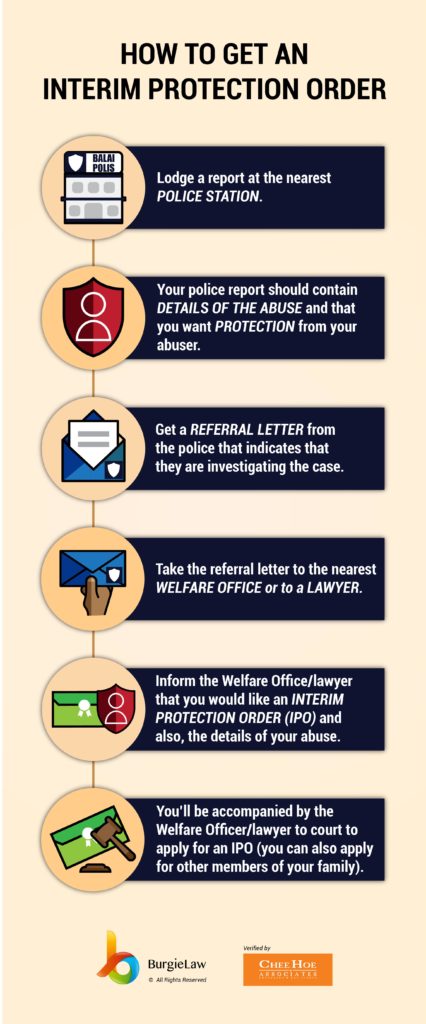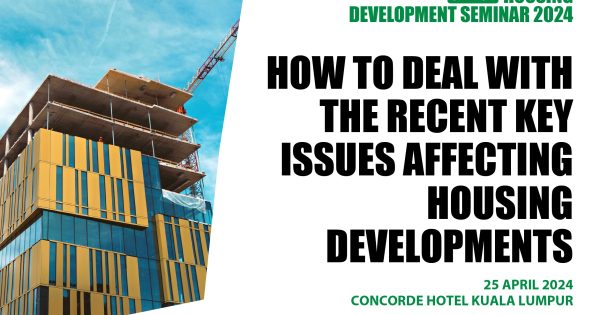A Short Overview of Domestic Abuse Law & Interim Protection Orders in Malaysia
WHAT IS DOMESTIC ABUSE/VIOLENCE?
Under the Domestic Violence Act 1994, domestic violence is considered as:
- Willfully or knowingly placing, or attempting to place, the victim in fear of physical injury;
- Causing physical injury to the victim by such act which is known or, ought to have been known would result in physical injury;
- Compelling the victim by force or threat to engage in any conduct or act, sexual or otherwise, from the victim has the right to abstain;
- Confining or detaining the victim against the victim’s will; or
- Causing mischief or destruction or damage to property with the intent to cause, or knowing that is likely to cause distress or annoyance to the victim, by a person against:-
a. His or her spouse;
b. His or her former spouse;
c. A child
d. An incapacitated adult; or
e. Any other member of the family;

Also included in the act are sexual abuse, emotional and psychological abuse. The Domestic Violence Act (DVA) was passed by Parliament in 1994 but came into effect on 1st June 1996. In Malaysia, Syariah/Sharia law (for Muslims) may also come into effect for offenders. It is important to note that marital rape is not included in the DVA as it is attached to the Penal Code (ACT 574) – the amended Section 375A does not criminalise marital rape.
STATISTICS & STIGMA
Domestic abuse is a complex and sensitive issue. It operates in a cycle and has many contributing factors that cause it such as environment, background, socio-economic problems, substance abuse, personality/psychological traits etc. According to the Women’s Aid Organisation (WAO) latest available statistics from 2014, 65.1% of their residents sought shelter with them for domestic violence. That’s approximately 110 survivors out of 169.
The statistics are not likely to be a full representation of the actual number of domestic violence cases. Like other abuse cases, domestic abuse often goes unreported. Stigma is one of the main reasons that domestic abuse cases are under-reported. Malaysian culture places a lot of emphasis on family values and domestic abuse is often seen as a ‘family matter’ and not a crime. In a highly patriarchal society such as ours, men are generally taught from birth taught that women are somehow ‘weaker’. Likewise, stigma can also be a contributing factor to domestic abuse victims trying to escape their situation.
But sometimes it is the woman’s fault too. After a long day’s work, the husband comes home and the wife starts grumbling. Let the man cool down first. You must be diplomatic…If not, you deserve a slap.
– Quote for illustration purposes only. Source: WAO
It’s important to note that although men can and have been victims of domestic abuse but the number significantly pales in comparison to that of female victims in Malaysia. Abuse can happen to anyone regardless of age, socio-economic status, gender, race, religion or creed. Victim blaming is prevalent – “Why didn’t you just pack up and leave? It’s your fault for staying!” – and only serves to highlight the ignorance and stigma around this sensitive issue. Bear in mind that abuse is about control and the abuser will always make it feel as if the ‘explosion’ is always the victim’s fault thus making the victim feel vulnerable and confused.

Fear of consequences (aggressive retaliation such as harassment, violent threats towards family members, children, pets are common responses by the abuser), no where to turn to, no financial independence/support are some of the factors that may contribute to a victim’s reasons for staying with the abuser. Even separation does not always mean the end of abuse or harassment.
INTERIM PROTECTION ORDERS
An important legal document for survivors is an Interim Protection Order (IPO). It aims to protect you from your abuser. It prohibits further domestic violence/harassment, being within a certain distance from you and/or those protected by the IPO (e.g. your children), contacting you and/or your children as well as entering your residence and work place. IPOs applications must be submitted through court and are usually valid for 12 months. After the period of validity is up, they can further be renewed for another 12 months. They cease effect once police investigations are complete or if there is already are criminal proceedings related to domestic abuse against the person whom the order is made.
The court can also include a warrant of arrest should you request protection in the event your abuser violates the conditions of your IPO. Throughout the application process, you ideally should be assisted by your Social Welfare Officer and the police. The police will decide whether or not to charge your abuser within 24 hours of arrest depending on the strength of evidence and prospect of conviction. Should the court grant an extension, the police may detain your aggressor for a maximum of 14 days. For those who have filed petitions for divorce/nullity, a Restraining Order can also be granted.
If you are a victim of domestic abuse or know someone who is, please do not hesitate to contact the below organisations’ helplines for help and lodge a police report. Bear in mind that safety and support should be your top priorities.
Womens Aid Organisation: 03 7956 3488
Sisters In Islam: +603-7960 3357 / 7960 5121 / 7960 6733
All Women’s Action Society (AWAM): 03-78770224
FURTHER RESOURCES:
- The WAO released a documentary with stories from survivors of domestic abuse.
- The Malaysian Bar Council has a list of possible legal actions to protect abuse victims.


